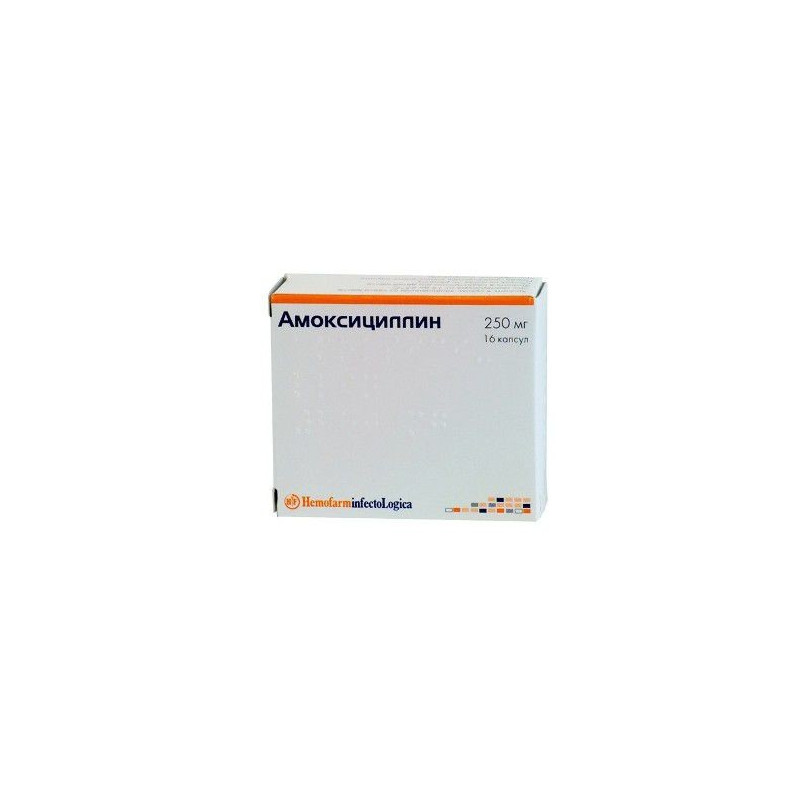



 All payments are encrypted via SSL
All payments are encrypted via SSL
 Full Refund if you haven't received your order
Full Refund if you haven't received your order
Amoxicillin is a broad-spectrum antibiotic from the group of semi-synthetic penicillins, which has a wide spectrum of action. The effect of amoxicillin occurs very quickly. Like other penicillin antibiotics, it inhibits cell wall synthesis.
Amoxicillin is bactericidal and is active against gram-positive cokes (Staphylococcus spp., Streptococcus pneumoniae, Streptococcus group A, B, C, G, H, I, M); gram-negative cocci (Neisseria meningitidis, N. gonorrhoeae); gram-negative bacilli (Escherichia coli, Shigella spp., Klebsiella spp., Proteus mirabilis, Salmonella, Campilobacter, Haemophilus influenzae, Bordetella pertussis, Chlamydia).
Amoxicillin active against all the microorganisms are the people of peptostreptokokki, clostridia and fuzobakterii).
To Amoxicillin resistant strains of microorganisms that produce beta-lactamase.
Amoxicillin is acid-resistant and therefore effective when taken orally.
Bacterial infections caused by pathogens sensitive to Amoxicillin:
- acute and chronic infections of the respiratory tract (angina, acute otitis media, pharyngitis, sinusitis; acute and chronic bronchitis, bronchopneumonia, lung abscess);
- acute and chronic infections of the digestive tract, biliary tract (peritonitis, cholecystitis, intestinal infections);
- acute and chronic infections of the urinary system (pyelonephritis, urethritis, gonorrhea);
- purulent infections of soft tissues;
- sepsis
For adults appoint 500 mg 3 times / day. With severe disease - 1 g 3 times / day.
Children aged 5-10 appoint 250 mg 3 times / day, children 2-5 years old - 125 mg 3 times / day, children under 2 years - at the rate of 20 mg / kg body weight (divided into 3 doses). The course of treatment is 5-12 days. The interval between receptions 8 hours
For the treatment of acute uncomplicated gonorrhea once administered 3 g (in combination with 1 g of probenecid).
Women are recommended to repeat the indicated dose in a day.
In patients with impaired renal function with a CC of 10–40 ml / min, the interval between doses should be increased to 12 hours; when QA is less than 10 ml / min, the interval between doses should be 24 hours.
Allergic reactions: urticaria, skin rash, erythema, rash, angioedema, rhinitis, conjunctivitis, photosensitization; rarely fever, joint pain, eosinophilia; in rare cases - anaphylactic shock.
Other: possible development of superinfection with the appearance of loose stools, nausea.
- hypersensitivity to penicillins;
- Infectious mononucleosis.
Data on the possible embryotoxic, teratogenic or mutagenic effects of the drug when taken during pregnancy are currently not available.
Amoxicillin is found in breast milk, which should be considered when prescribing Amoxicillin during lactation.
In patients with hypersensitivity to cephalosporins, carbapenems should consider the possibility of cross-allergy.
In severe infections of the gastrointestinal tract, accompanied by constant diarrhea or vomiting, amoxicillin should not be given orally because of the possibility of poor absorption.
The use of antibiotics is ineffective in the treatment of acute respiratory viral infections.
Special care should be taken in patients with allergic diathesis or bronchial asthma and hay fever (pollinosis), gastrointestinal tract history (especially colitis associated with the use of antibiotics).
With long-term administration of Amoxicillin, Nystatin, levorin or other antifungal drugs should be given at the same time.
With long-term use of high doses of the drug in patients should monitor the performance of the liver and kidneys, conduct general urine tests. It is advisable to control the picture of peripheral blood.
With long-term treatment should be considered the possibility of the development of superinfection with insensitive microorganisms, including mushrooms.
During therapy, ensure adequate fluid intake and maintain sufficient diuresis.
When watery feces with mucus and blood, abdominal pain, fever, and tenesmus appear, pseudomembranous colitis should be suspected. In this case, Amoxicillin should be canceled and appropriate treatment should be prescribed.In this case, drugs that slow down peristalsis of the gastrointestinal tract, are contraindicated.
The simultaneous use of the drug with probenecid leads to an increase in the concentration of amoxicillin in the blood by reducing its excretion by the kidneys. In this case, the penetration of amoxicillin into the tissue may decrease.
Store in a dry, dark place at room temperature.
The prepared suspension is stable at a temperature of from 15 to 25oC for 14 days.
